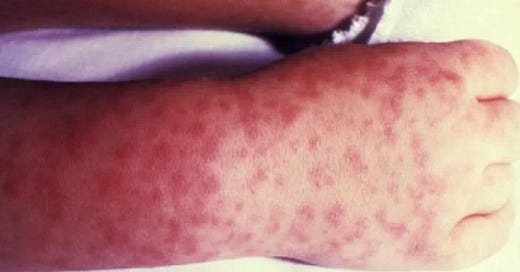Mexican health authorities report 32 cases of spotted fever from seven states through March 22 this year, a slight increase compared to the 30 cases reported last year at the same time, according to the Epidemiological Bulletin prepared by the General Directorate of Epidemiology of the Ministry of Health via this media account.
https://www.milenio.com/ciencia-y-salud/nuevo-leon-primer-lugar-nacional-casos-fiebre-manchada-con-7
To date, Nuevo León and Sonora have reported seven cases each, followed by Baja California with five, Chihuahua with five, Sinaloa with four, Coahuila with three and Durango with one.
Rocky Mountain spotted fever (RMSF) is endemic in urban areas of several states of northern Mexico, including but not exclusive to Baja California, Sonora, Chihuahua, Coahuila and Nuevo León.
Rocky Mountain Spotted fever (RMSF) is a tick borne disease caused by the organism, Rickettsia rickettsii.
RMSF is NOT spread from a person to another person.
Typically, the progress of the disease is a sudden onset of high fever, deep muscle pain, severe headache and chills. A rash usually appears on the extremities within 5 days then soon spreads to palms and soles and then rapidly to the trunk.
The disease is rapidly progressive, and half of all people who die from this disease succumb within 8 days of illness onset. Untreated disease is often fatal, and the case fatality rate of RMSF in Mexico can exceed 40%.
Children younger than 10 years old are five times more likely than adults to die from RMSF.
Death is uncommon with prompt recognition and treatment.
The absence or delayed appearance of the typical rash or the failure to recognize it, especially in dark-skinned people cause a delay in diagnosis and increased fatalities. Early stages of RMSF can be confused with erlichiosis, meningococcal meningitis and enteroviral infection.
Doxycycline is the recommended antibiotic treatment for RMSF in adults and children of all ages, including pregnant women.
Rocky Mountain Spotted Fever and the importance of timely treatment with doxycycline






and it also affects dogs and probably other companion animals.